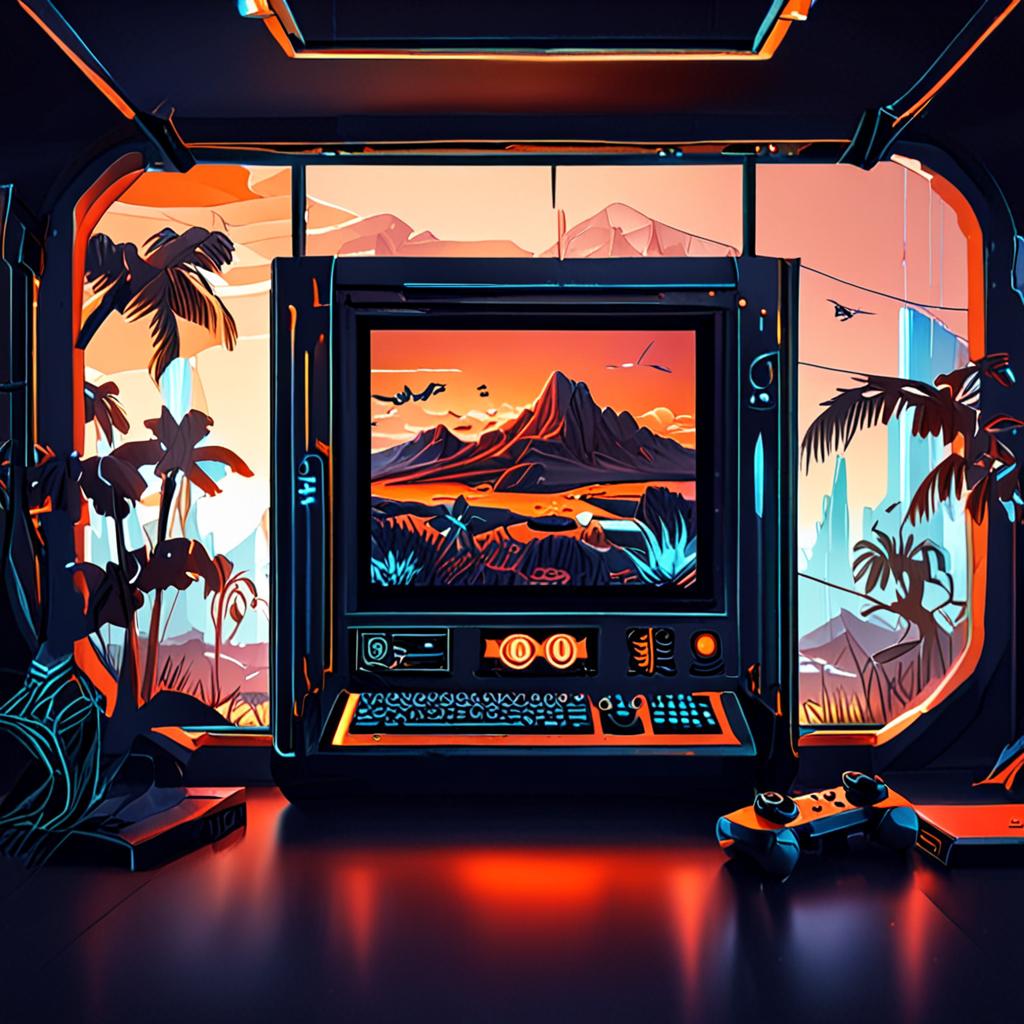Introduction
The gaming industry has often been criticized for its perceived lack of real-world applicability, with many viewing it as a mere form of entertainment. However, this assumption overlooks the numerous life skills that gamers develop and hone through their gaming experiences. In reality, the gaming community faces a significant problem: the inability to effectively translate in-game skills to real-life situations.
Traditional methods of personal development, such as self-help books and workshops, often fail to engage individuals in a meaningful way, with a staggering 80% of New Year’s resolutions abandoned by February (University of Scranton, 2019). This is largely due to the lack of interactive and immersive learning experiences.
Recent advancements in AI have enabled the development of sophisticated tools and techniques that can analyze and provide insights on human behavior, cognition, and decision-making. By leveraging these AI-powered tools, we can uncover the hidden connections between gaming and real-world skills. In this blog, we will explore 10 essential life skills that can be learned from playing video games, providing actionable insights and real-world examples that demonstrate the tangible benefits of gaming.
Navigating Virtual Worlds: How Gaming Enhances Problem-Solving and Critical Thinking
Navigating virtual worlds in games requires players to think critically and solve complex problems, skills that are highly transferable to real-life situations. This aspect of gaming is particularly relevant in the context of personal development and productivity, as it enhances cognitive abilities such as spatial reasoning, decision-making, and adaptability.
A notable example of this is the game Portal, which has been shown to improve spatial reasoning and problem-solving skills in players. A study published in the journal Computers in Human Behavior found that players who played Portal for 8 hours showed significant improvement in spatial reasoning and problem-solving skills compared to those who played a different game (Shute, 2008).
The integration of AI in modern games further amplifies this effect. AI-powered game environments can adapt to a player’s skills and learning style, providing a personalized and optimized learning experience. For instance, AI-driven game analytics can track a player’s problem-solving strategies and provide feedback on areas for improvement. By leveraging AI, gamers can accelerate their cognitive development and develop a more effective approach to problem-solving, making them more productive and efficient in their personal and professional lives.
The High Score Mindset: Developing Resilience and Adaptability through Competitive Gaming
Competitive gaming fosters a unique mindset that enables players to develop resilience and adaptability, essential life skills that transcend the virtual realm. This mindset is characterized by a growth-oriented approach, where players focus on learning from failures, analyzing mistakes, and adjusting strategies to achieve success. By embracing challenges and persevering through setbacks, gamers cultivate mental toughness and flexibility.
A notable example is the esports team, Cloud9’s League of Legends squad, which rebounded from a devastating 2018 season to win the 2019 LCS Spring Split. This turnaround was attributed to the team’s ability to adapt to new strategies and player roles, demonstrating the power of resilience and adaptability in competitive gaming.
AI-driven tools, such as game analytics software and AI-powered coaching platforms, can enhance this mindset by providing players with actionable insights and personalized feedback. For instance, AI-powered analytics can help players identify areas of improvement, track progress, and develop data-driven strategies to optimize performance. By leveraging AI-driven tools, gamers can accelerate their skill development and further cultivate the high score mindset, leading to improved resilience and adaptability in both gaming and real-life contexts.
From Team Play to Team Work: Leveraging Esports to Improve Communication and Collaboration Skills
Effective communication and collaboration are crucial skills in both gaming and professional settings. Esports, in particular, offers a unique environment where individuals can develop and hone these skills. By working together as a team to achieve a common goal, gamers learn to coordinate strategies, provide feedback, and adapt to changing situations.
A study by the Entertainment Software Association (ESA) found that 63% of frequent gamers reported improved teamwork and communication skills. This is no surprise, given the fast-paced and dynamic nature of esports. Players must quickly convey information, make split-second decisions, and rely on their teammates to execute complex strategies.
Artificial intelligence (AI) can further enhance these skills by providing data-driven insights and personalized feedback. For example, AI-powered tools can analyze team communication patterns, identifying areas for improvement and suggesting strategies for more effective collaboration. By leveraging AI in esports, players can refine their communication and collaboration skills, leading to improved performance and a stronger competitive edge. As the esports industry continues to grow, the value of these skills will only continue to increase, both in gaming and beyond.
Conclusion
The integration of Artificial Intelligence (AI) in the gaming industry has not only elevated the gaming experience but also transformed the way we acquire essential life skills. AI-driven games and simulations have been shown to enhance cognitive abilities, such as problem-solving and decision-making, while also fostering emotional intelligence, teamwork, and communication skills.
As we’ve explored in this article, the skills gained from playing video games can have a significant impact on personal and professional development, productivity, and even esports performance. To leverage these benefits, we recommend two practical next steps:
- Experiment with AI-powered games and simulations that focus on developing specific life skills, such as strategic thinking, leadership, or time management. This will help you identify areas for improvement and track your progress.
- Adopt a growth mindset and recognize that the skills you develop through gaming can be applied to real-life situations. By doing so, you’ll be able to transfer the knowledge and expertise gained from gaming to enhance your personal and professional life.
